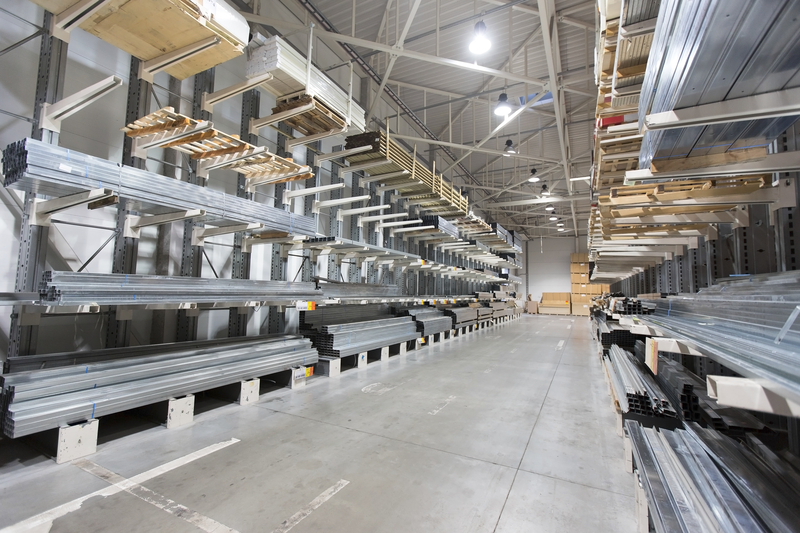
Not all aluminum is created equal, neither are extruded aluminum products. This means that when choosing a grade for use in a particular project, it’s important to know the different alloy types and their properties. There are times you can find yourself looking at a data sheet filled with numbers and letters that seem like an alien language.
Comprehending complicated metallurgical terms about extrusion – all high-end sounding alloy series, as well as temper codes, can leave your head spinning faster than a ballerina on Red Bull. Can we clear up things here?

A four-digit number identifies aluminum alloys; the first digit determines the primary alloying element used in the manufacturing process. The most common series used in extrusions include:
1XXX Series (Pure Aluminum) - These alloys are the purest (at more than 99%) and have excellent workability and formability besides being highly conductive. Nevertheless, they cannot be used for structural purposes since they have very low strength as far as extrusions are concerned.
3XXX Series (Manganese) - Manganese strengthens these alloys slightly thereby making the 3XXX series good choices for mildly stressed applications. They have malleability properties and are resistant to rust; for instance, they are good materials for the construction industry, roofing sheets, or sidings.
5XXX Series (Magnesium): This is another commonly used alloying element that provides a good tradeoff between strength, resistance against corrosion, and weldability. 5XXX series alloys are widely utilized in architectural extrusions like window frames, doors, and cladding panels. Think about them as the all-round sportsman able to participate in various disciplines.
6XXX Series (Magnesium & Silicon): 6XXX series alloys have a combination of magnesium and silicon with an exceptional strength property making them ideal for beams, frames, or towers. Consider them as the weight lifter that carries heavy loads.
7XXX Series (Zinc): Zinc takes the strength factor to the next level. 7XXX series alloys are the strongest commercially available wrought aluminum but their high strength comes at a cost – they are less formable and more susceptible to corrosion. These alloys find their best use within aerospace components and high-performance sporting goods.
Keep in mind that this is just a summary. Each group has many alloys with different properties. It is necessary to consult with an expert aluminum supplier to find the right grade for your needs.
But it does not end there. Heat treatment processes are also done on extrusion profiles, which affect its strength and workability. These processes are represented by a single-letter temper code after the four-digit alloy number.
Below are some of the common temper codes used in extrusions;
Understanding temper codes is important to choosing an extrusion that meets both your project’s strength and formability requirements.
Here is what you need to consider when getting a specific aluminum series
Building and Construction: For window frames, doors, and cladding panels being parts of building structures, popular choices include 5XXX or 6XXX series alloys that are tempered either T4 or T6 because of their strength properties, corrosion resistivity as well as their workability.
Automotive and Transportation: Automotive frames, components, and transportation applications often use lightweight and high-strength 6XXX series alloys which are usually tempered at a state of T6. It is worth noting that there may be some circumstances when one might need to choose from 7XXX series alloys if they are dealing with specialized parts.
Consumer Electronics: Electronic enclosures plus heat sinks can be made from highly formable and conductive 1XXX as well as 3 X series alloys. The specific temper codes vary depending on desired strength and also formability.
Aerospace and Defense: The super lightweight nature together with the high-strength characteristics of such materials makes them ideal for demanding aerospace uses; hence most aerospace systems apply high-strength low-weight ratio aluminum such as T6 tempered 7XXX aluminum.
Remember: When considering grade selection for your particular needs always contact an experienced extrusion supplier to obtain the best possible results. This will help them take into account variables such as load requirements, corrosion resistance issues, formability issues plus budgetary limits to ensure you end up with just the right aluminum alloy.
Shishan Production Base
Nonferrous Metal Industrial Park, Xiaotang, Shishan Town, Nanhai District, Foshan City, Guangdong Province
Gaobian production base
Gaobian Zhangbian Industrial Zone, Dali Guangyun Road, Nanhai District, Foshan City, Guangdong Province
Company summary: + 86-757-85558828
Fax: + 86-757-85550238